Health Climate
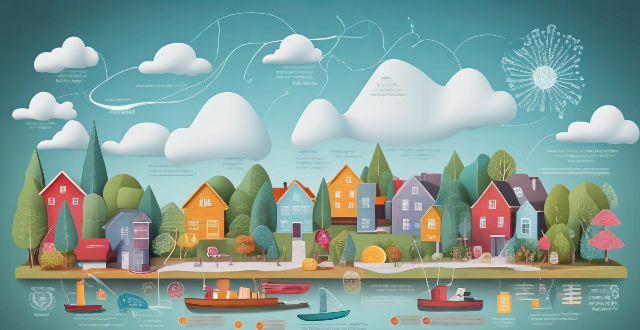
How do climate losses and damages impact human health ?
This article discusses the impact of climate change on human health, highlighting various ways in which climate losses and damages can affect well-being. It covers topics such as extreme weather events causing physical injuries and illnesses, worsening air quality leading to respiratory problems, food insecurity resulting in malnutrition, increased waterborne diseases due to warmer water sources, and mental health issues arising from displacement and migration. The article emphasizes the need for a comprehensive approach to address these challenges, including mitigating greenhouse gas emissions, adapting to changing conditions, and providing support for vulnerable populations.

What is the impact of climate services on public health ?
Climate services play a crucial role in maintaining and improving public health by providing early warning systems, monitoring air and water quality, supporting food security, and assisting in disease surveillance and control. These services help individuals and communities make informed decisions to protect their health and well-being in the face of changing climate conditions.

How does climate change impact mental health ?
Climate change has a multifaceted impact on mental health, including direct effects such as trauma from extreme weather events and environmental degradation, and indirect effects like economic strain and social disruption. Mitigating this impact involves raising awareness, strengthening community resilience, investing in mental health services, advocating for policies that address both climate change and public health concerns, and encouraging sustainable practices.

How does climate change affect women's health and reproductive rights ?
Climate change has a significant impact on women's health and reproductive rights, including increased risk of displacement, violence, and sexual assault during extreme weather events; food insecurity and malnutrition affecting reproductive health; water scarcity leading to physical injuries and reproductive health problems; air pollution causing respiratory and heart diseases as well as complications during pregnancy; and mental health issues due to stress and fear of violence. It is crucial to take action to mitigate the effects of climate change and protect the health and well-being of all people, especially those who are most vulnerable.

What are the implications of climate variability for human health ?
Climate variability significantly affects human health through direct and indirect effects. Direct effects include extreme weather events like heatwaves, cold spells, intense rainfall, storms, hurricanes, wildfires, and ozone layer depletion, which can lead to various health issues. Indirect effects involve waterborne diseases, food security problems due to changes in crop yields and pest spread, and mental health issues related to displacement and economic stress. Mitigating climate change and adapting to its impacts are crucial for protecting public health.

What are the impacts of climate change on women's health and well-being ?
Climate change is a global issue that affects everyone, but its impacts are not distributed equally across all populations. Women are often disproportionately affected by climate change due to their roles in society and their biological differences from men. This essay discusses the various ways in which climate change can have negative impacts on women's health and well-being, including extreme weather events, food security and nutrition, water scarcity, reproductive health, and mental health. It is essential that we take action to mitigate the effects of climate change and ensure that all people, regardless of gender, can live healthy and fulfilling lives.
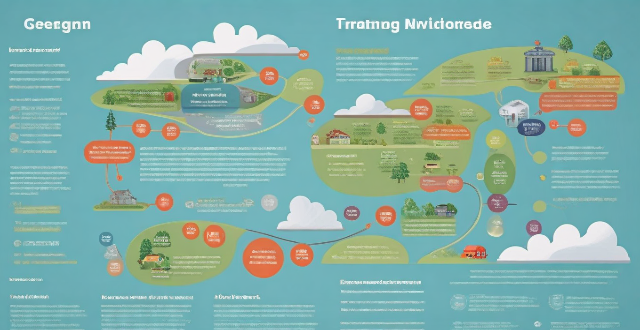
Can climate change exacerbate mental health issues such as depression and anxiety ?
Climate change can exacerbate mental health issues such as depression and anxiety through various pathways, including extreme weather events, displacement and loss of home, food insecurity, and economic stress. It is crucial for policymakers and healthcare professionals to recognize the connection between climate change and mental health and implement strategies to mitigate the adverse effects of climate change on mental well-being.

What measures can be taken to reduce the health impacts of climate change ?
Climate change is a significant threat to human health, but measures can be taken to reduce its impacts. These include reducing greenhouse gas emissions through renewable energy sources and energy efficiency, adapting to climate change by building resilient infrastructure and improving water management, promoting healthy lifestyles such as healthy eating habits and physical activity, and educating people about the health impacts of climate change.
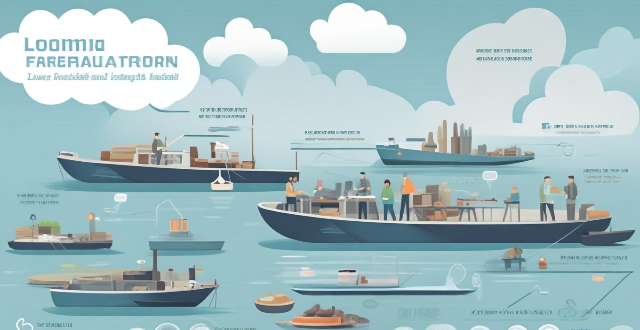
What are the long-term health consequences of climate change ?
The long-term health consequences of climate change are multifaceted and can be categorized into several key areas, including increased frequency and severity of heat waves, extreme weather events, spread of diseases, air quality issues, food insecurity, and mental health impacts. These effects have far-reaching implications for public health and require urgent action to mitigate their impact.

What role does access to healthcare play in mitigating the health effects of climate change ?
The text discusses the role of healthcare accessibility in mitigating the health effects of climate change. It highlights the importance of preventive care, emergency response, and chronic disease management in reducing vulnerability to climate-related health risks. The text also explores direct and indirect effects of climate change on human health, such as heat-related illnesses, respiratory issues, vector-borne diseases, mental health impacts, nutritional impacts, and displacement and migration. Finally, it suggests adaptation strategies for healthcare systems, including building resilient infrastructure, integrating climate change considerations into public health systems, and training community health workers on climate change impacts.
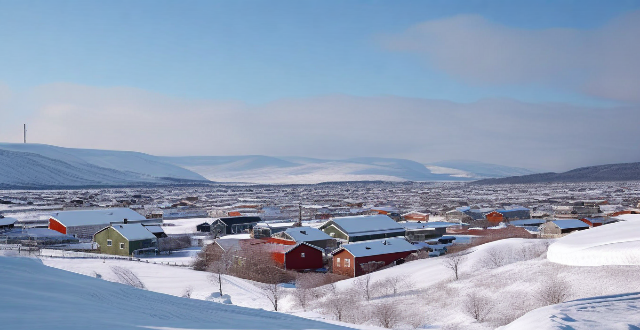
How can we protect ourselves from the negative effects of climate change on our health ?
Climate change poses a threat to our health through extreme weather, air pollution, and the spread of diseases. To protect ourselves, we should stay informed about weather updates, maintain good health practices, reduce exposure to pollutants, adapt to environmental changes, and support sustainable practices. By being proactive, we can mitigate the negative effects of climate change on our well-being and contribute to larger efforts in combating this global issue.

What are the impacts of climate change on human health ?
Climate change affects human health in various ways, including increased heat-related illnesses, extreme weather events, changes in disease patterns, food and water security issues, and mental health impacts. It is important to take action to mitigate these effects and protect public health.

How does environmental stress from climate change influence mental health disorders such as anxiety and depression ?
Climate change is a global issue that not only affects the environment but also has significant implications for human health, including mental health. Environmental stress from climate change can exacerbate existing mental health disorders such as anxiety and depression or even trigger new ones. One of the most direct ways in which climate change impacts mental health is through increased exposure to natural disasters such as hurricanes, floods, wildfires, and heatwaves. These events can cause traumatic experiences, loss of homes and communities, displacement, and financial hardship, all of which are risk factors for developing mental health disorders like anxiety and depression. Climate change affects ecosystem services, such as air and water quality, food production, and outdoor recreational opportunities, all of which have been linked to mental well-being. The socioeconomic impacts of climate change, such as job loss in industries affected by climate policies or extreme weather events, can lead to financial insecurity and social disruptions that exacerbate mental health conditions. Anticipatory anxiety about the potential consequences of climate change can also contribute to chronic stress and exacerbate anxiety and depressive symptoms. Coping mechanisms and building resilience are essential for managing the psychological impacts of environmental stress.

How is climate change affecting children's health ?
The text discusses the impacts of climate change on children's health, which are both direct and indirect. Direct effects include increased respiratory issues due to pollen and allergens, vector-borne diseases, heat-related illnesses, and nutritional deficiencies. Indirect effects encompass mental health challenges like trauma and displacement, educational disruptions such as school closures, and social and emotional development issues. The conclusion emphasizes the need for immediate attention and interventions to address these challenges, focusing on strengthening children's resilience through healthcare, educational support, and nurturing environments.

What are the psychological effects of climate change on children, and how can their mental health rights be protected ?
The psychological effects of climate change on children are significant and can include anxiety, fear, depression, trauma, and grief. To protect children's mental health rights, it is important to educate them about climate change, provide access to mental health services, create safe spaces for expression, and encourage advocacy and action.

How does climate change affect human health ?
Climate change affects human health in numerous ways, including increased risk of extreme weather events like heatwaves, floods, and hurricanes that can lead to dehydration, injuries, and displacement. Changes in disease vectors due to warmer temperatures allow the spread of mosquito-borne and tick-borne diseases. Longer growing seasons result in higher pollen counts, worsening allergies, while wildfires and dust storms reduce air quality causing respiratory issues. Food security is also affected as droughts and extreme temperatures can lead to crop failures and malnutrition. Mental health impacts include stress and anxiety from disaster-related trauma and economic stress. Addressing this challenge requires adaptation strategies, mitigation efforts, and public health preparedness.

What are the potential health risks associated with climate refugees ?
Climate refugees face potential health risks related to physical and mental health, as well as social determinants of health. These risks include exposure to environmental hazards, limited access to healthcare services, malnutrition and food insecurity, trauma and post-traumatic stress disorder (PTSD), grief and loss, social isolation and alienation, housing instability and overcrowding, limited access to education and employment opportunities, and vulnerability to human rights abuses. Addressing these risks requires a comprehensive approach that includes improving access to healthcare services, ensuring adequate nutrition and safe housing, providing mental health support, and promoting social inclusion and protection against human rights abuses.

How does climate change affect gender equality ?
The text discusses the impact of climate change on gender equality, highlighting increased vulnerabilities for women in health, economics, and social factors. It further points out how climate change exacerbates existing inequalities through gender-based violence and educational setbacks. However, it also identifies opportunities for resilience and empowerment through resilient livelihoods, enhanced participation, and improved health and safety measures. The conclusion emphasizes the importance of addressing climate change with a gender lens to achieve sustainable development and a more equitable future.
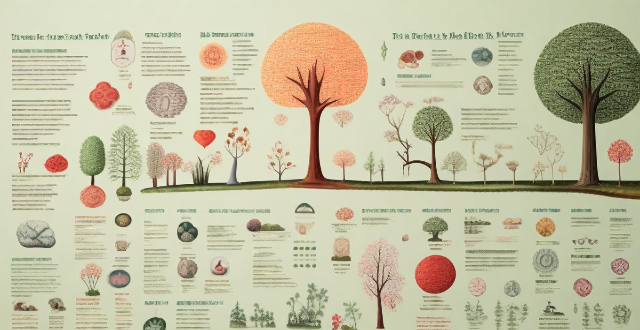
What is the relationship between climate change and environmental racism, and how can we address this issue through climate justice ?
Climate change and environmental racism are interconnected issues that disproportionately affect marginalized communities. The relationship between the two is multifaceted, involving displacement, health impacts, economic disparities, infrastructure vulnerabilities, and limited access to information and resources. To address these issues, pursuing climate justice is crucial, which involves ensuring equal representation in climate policy decisions and equitable distribution of benefits and burdens associated with climate action. Key strategies for achieving climate justice include community engagement, equitable resource allocation, health protection measures, economic opportunities, infrastructure resilience, access to information, legal protections, and global cooperation.

What are the challenges faced by climate refugees ?
Climate refugees face numerous challenges, includingClimate refugees face numerous challenges, including limited access to resources, loss loss of livelihoods, cultural displacement, mental health issues, social exclusion, and security risks. Addressing these challenges requires a comprehensive approach that includes legal protection, access to resources and services, livelihood restoration, cultural preservation, mental health support, social inclusion, and security measures.
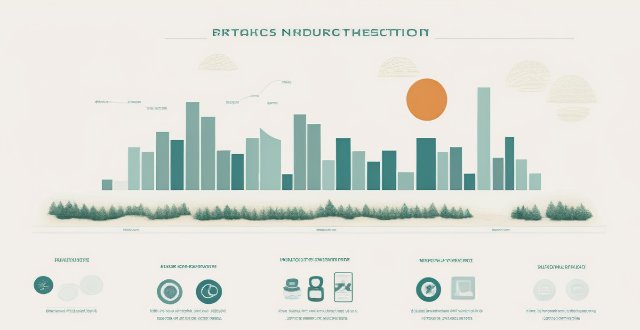
What role does climate change play in the increased frequency of natural disasters and their impact on health ?
The article discusses the role of climate change in increasing natural disasters and their impact on health. It explains how extreme weather events, air quality issues, disruption of infrastructure and services, and mental health impacts are all consequences of these disasters. The article emphasizes the importance of preparation and mitigation strategies to minimize the negative effects on public health.

What are the long-term effects of climate change on children ?
Climate change has far-reaching effects on children's health, including physical, mental, and emotional impacts. Poor air quality, extreme weather events, and food insecurity can harm children's physical health. Trauma and stress from climate-related disasters, as well as fear and anxiety about the future, can affect their mental health. Loss of home and community, along with intergenerational trauma, can impact their emotional health. Addressing these challenges requires a comprehensive approach to ensure a healthier future for all children.
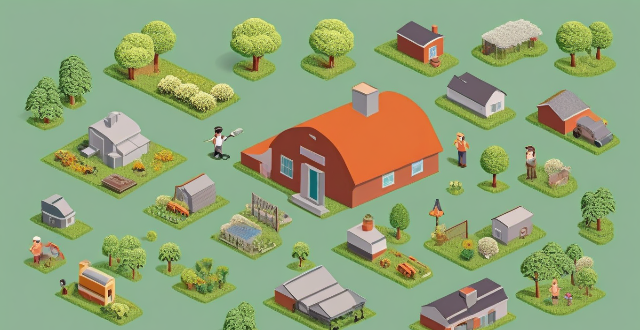
What are the implications of inaccurate climate model predictions ?
Inaccurate climate model predictions can have far-reaching implications, affecting various aspects of our lives and the environment. This article will discuss the potential consequences of these inaccuracies and highlight the importance of accurate climate modeling. Misallocation of resources, loss of biodiversity, and increased greenhouse gas emissions are some environmental impacts. Economic implications include costly mitigation strategies, loss of revenue, and uncertainty in investment decisions. Social and health impacts involve displacement and migration, public health risks, and food security threats. Policy implications include weakened climate policy, international relations, and legal challenges. Accurate climate model predictions are crucial for effective environmental management, economic planning, social welfare, and policy development.

What are the implications of climate change for future generations ?
Climate change has significant implications for future generations, including rising sea levels, extreme weather events, food security, and health impacts. Rising sea levels can lead to flooding, displacement of communities, and loss of habitat for marine life. Extreme weather events can cause loss of life, destruction of infrastructure, and long-term changes in ecosystem structure and function. Climate change can also affect global food production, particularly in regions that are already vulnerable to food insecurity. Changes in temperature and precipitation patterns can affect crop yields, pest and disease outbreaks, and water availability for agriculture. Additionally, climate change can have significant impacts on human health, including increased risk of infectious diseases, respiratory illnesses, and mental health problems. The challenges presented by climate change require urgent action from individuals, governments, and organizations around the world to mitigate its effects and ensure a sustainable future for all.

What are the implications of climate change for future generations, specifically children ?
Climate change poses significant challenges and threats to future generations, particularly children. The implications of climate change for children are multifaceted and far-reaching, affecting their health, safety, education, and overall well-being. Health implications include increased respiratory problems, spread of infectious diseases, and nutritional deficiencies due to extreme weather events and changing precipitation patterns. Safety risks involve natural disasters and heat stress, while education is affected by disruption of learning and limited access to educational resources. Overall well-being implications include mental health issues, loss of cultural heritage, and economic impacts on families and communities. Addressing these challenges requires urgent action to mitigate the effects of climate change and adapt to its inevitable consequences, ensuring a healthier, safer, and more equitable future for all children.

How can we protect children from the adverse effects of climate change ?
Climate change poses significant threats to children's well-being, affecting their health, education, nutrition, and mental health. To protect them, we can focus on education and awareness, health protection, nutrition and food security, mental health support, and infrastructure and urban planning. This includes integrating climate change education into school curriculums, engaging communities in workshops, ensuring safe housing and air quality, improving healthcare accessibility and vaccination programs, establishing school gardens and supporting local farmers, providing counseling services and community support networks, and developing resilient infrastructure and safe public spaces.

In what ways does climate change contribute to poor nutrition and malnutrition ?
Climate change affects nutrition and health by causing extreme weather events, changes in crop production, loss of biodiversity, food security issues, and limited access to clean water. These factors can lead to malnutrition and related health problems. It is important to take action to mitigate the effects of climate change and ensure that everyone has access to adequate nutrition and resources for good health.

How important is hydration in maintaining women's health ?
Proper hydration is crucial for women's health, affecting body temperature regulation, joint lubrication, digestion and nutrient absorption, waste elimination, skin health, weight management, and support during pregnancy and breastfeeding. It is recommended that women drink at least eight glasses of water per day, with individual needs varying based on age, activity level, and climate.

How can educational psychology aid in addressing students' mental health issues ?
Educational psychology can aid in addressing students' mental health issues by understanding the role of emotional intelligence, promoting a positive school climate, providing early intervention and support services, encouraging self-care and resilience, and facilitating collaboration between educators and mental health professionals.

How does sea level rise impact public health, especially in coastal areas ?
Sea level rise, driven by global warming and climate change, poses significant threats to public health in coastal areas through flooding and storm surge, waterborne diseases, environmental health hazards, mental health concerns, economic impacts, and social determinants of health. Addressing this challenge requires a multifaceted approach that includes adaptation strategies, improved infrastructure resilience, and mitigation efforts to reduce greenhouse gas emissions.